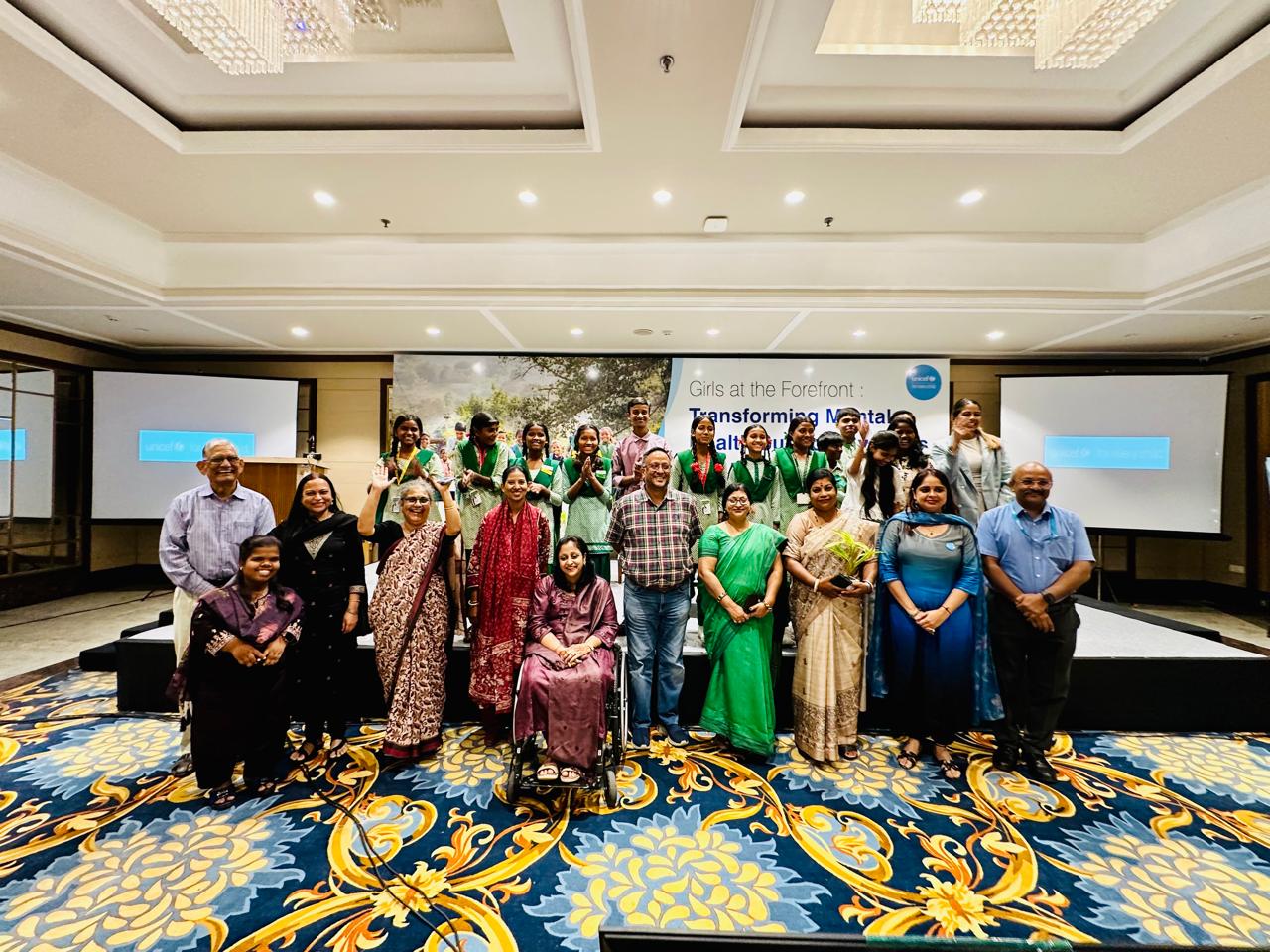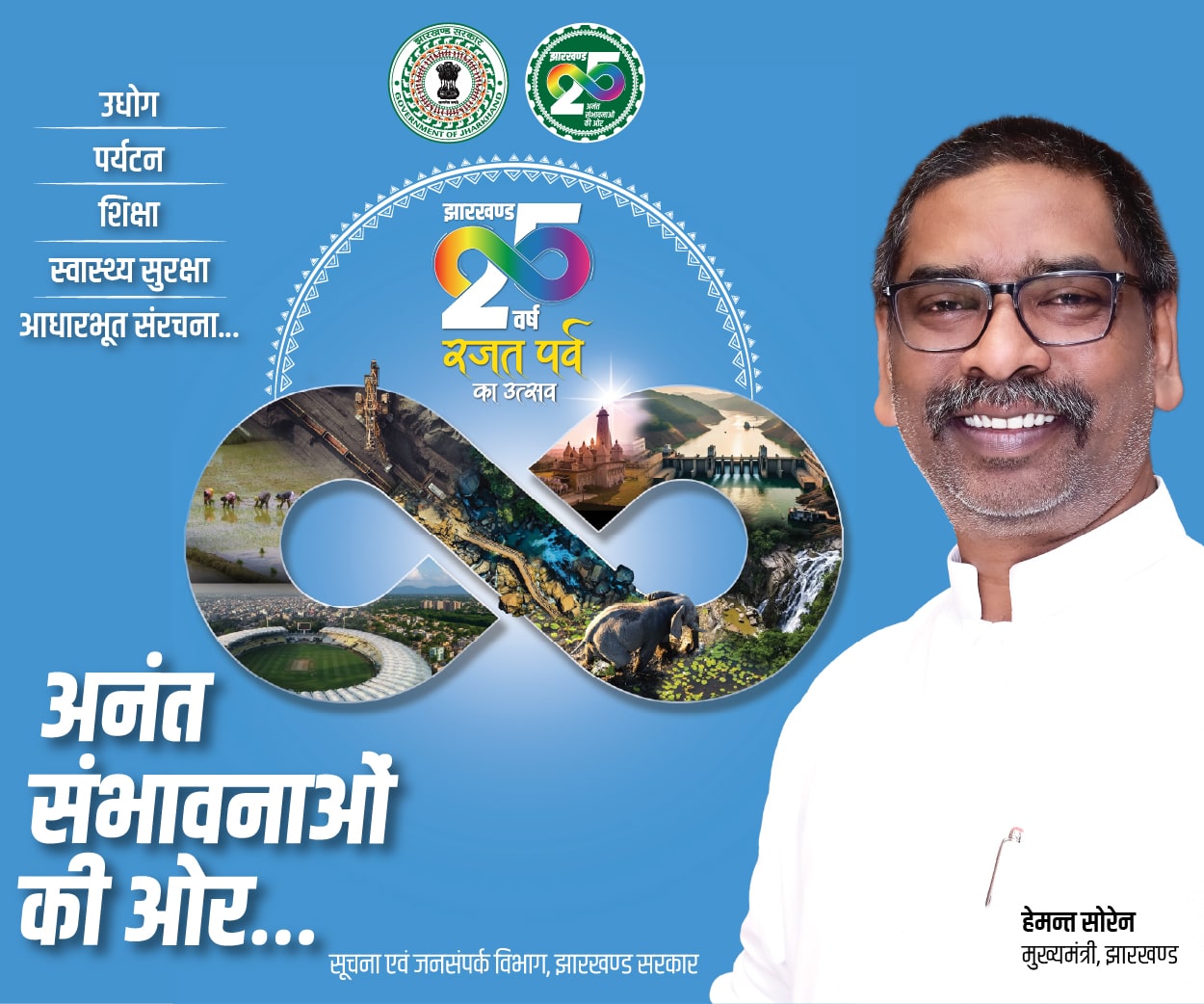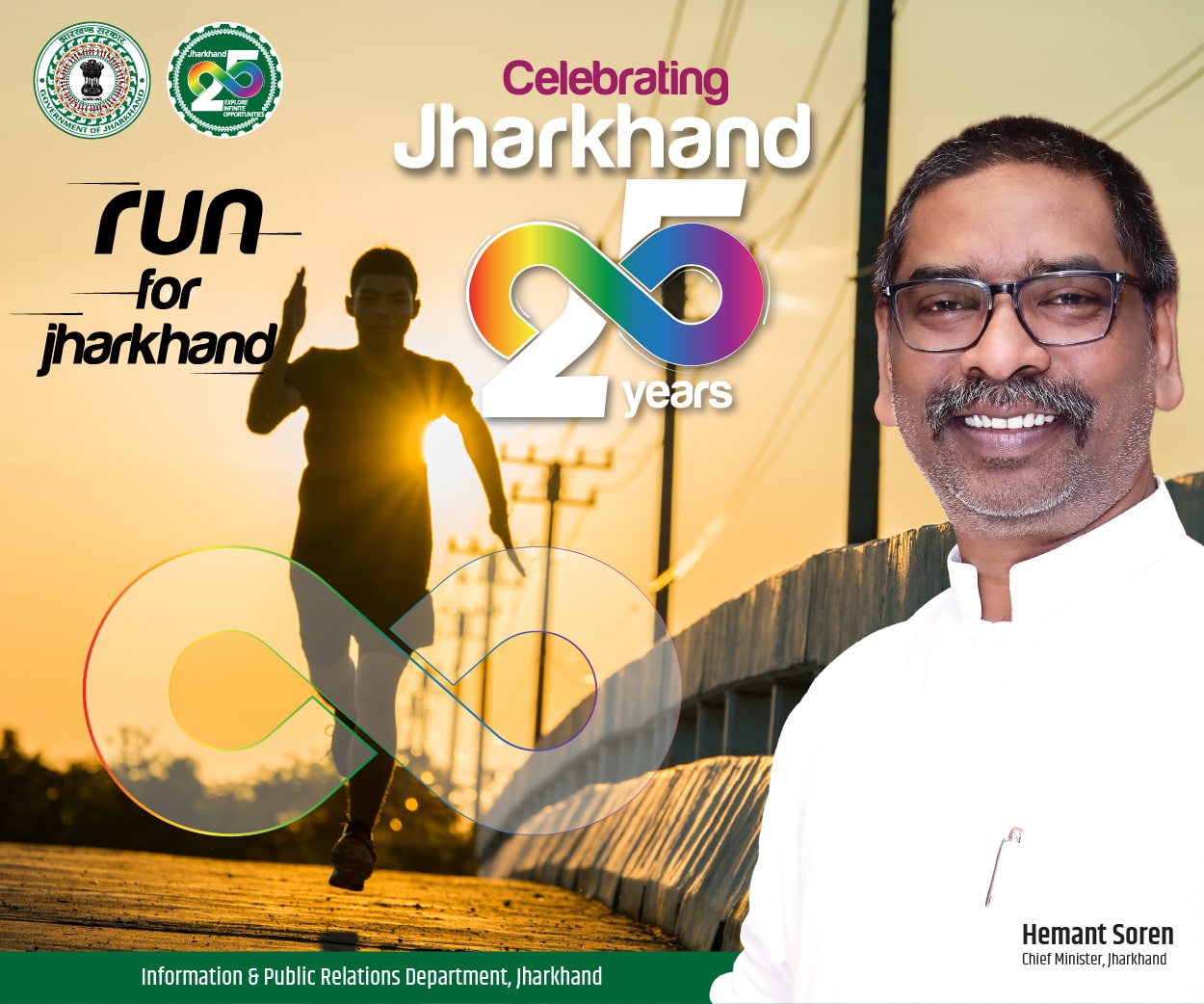




To mark World Mental Health Dayand International Day of the Girl, UNICEF Jharkhand, in collaboration with the Departments of Health & Education, organised a state-level consultation at Hotel BNR Chanakya, Ranchi, today.
Over 100 participants, including government officials, UNICEF representatives, health professionals, teachers, counsellors, and adolescents, attended the workshop and discussed the growing mental health challenges faced by children and youth and ways to address them through collective action.
The programme aimed to amplify adolescents’ voices and highlight the mental health challenges faced by young people in Jharkhand. The consultation began with powerful testimonies from adolescents who shared their lived experiences — from resisting child marriage and school dropout to overcoming stigma associated with mental illness and gender discrimination. Their stories underscored the urgent need to strengthen both community and institutional support systems for adolescent mental well-being.


Shri Shashi Prakash Jha, IAS, Mission Director, National Health Mission (NHM), Government of Jharkhand, said,"A healthy mind begins with a joyful heart. In today’s world of growing stress and expectations, it’s vital that our adolescents learn to embrace life with laughter, calm, and confidence. Every young person carries a world of potential within — they don’t need to be compared with anyone else. Each one is unique, capable of touching new heights when encouraged to believe in themselves.
“I also urge parents to spend time with their children, to listen, to talk about their dreams and hopes — as these conversations build trust, confidence, and the foundation of lifelong emotional well-being,” he added.
Dr. Kaninika Mitra, Chief of Field Office, UNICEF Jharkhand, underscored the need for a system-wide transformation to ensure stronger mental health support systems for children and adolescents. She said, “Mental health is an integral part of every child and adolescent’s right to health, dignity, and development. When we listen to the lived experiences of young people, we realise that their challenges are often rooted in social pressures, academic stress, and structural barriers that limit their well-being. UNICEF is committed to working with the Government of Jharkhand to strengthen and integrate mental health support within education, health, and child protection systems. Our collective goal is to create an environment where every adolescent — regardless of gender — feels safe, supported, and empowered to talk about their mental health without fear or stigma.”
Ms. Astha Alang, Communication, Advocacy & Partnership Specialist, UNICEF Jharkhand, explained the purpose of the consultation, stating, “The objective of this consultation was to bring all stakeholders — government, educators, and health professionals — together on a common platform to discuss the pressing mental health challenges faced by children and young people. Through open dialogue, shared understanding, and collective commitment, we aim to build consensus on practical, scalable, and sustainable solutions that ensure no child or adolescent is left to struggle alone.”


Dr. Vanesh Mathur, Health Officer, UNICEF Jharkhand, presented technical insights on the state’s progress and challenges in adolescent mental health. A panel discussion, moderated by Ms. Parul Sharma, Education Specialist, UNICEF Jharkhand, brought together experts including Dr. Nishant Goyal (Central Institute of Psychiatry, Ranchi), Ms. Gopika Anand (Director, Deepshikha), and Ms. Shantana (State Consultant, Mental Health Cell, NHM), along with teachers and counsellors. The discussion explored strategies to bridge systemic gaps and strengthen convergence between education, health, and community systems to promote holistic mental well-being among adolescents.
Panellists emphasized the importance of school-based counselling services, community-level awareness, and family engagement as critical investments to ensure early identification, timely intervention, and sustained mental health support for young people.
The session concluded with an open discussion that called for continued collaboration among government departments, civil society organisations, and the media to normalise conversations around mental health and empower adolescents to seek help without fear or stigma.